Civil Liberties, Human Rights, Political Prisoner, Targeting Muslims, Torture, Truth to Power, War Resister
Podcast: Play in new window | Download
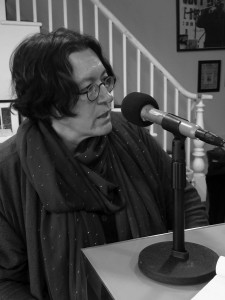
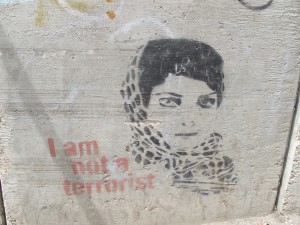
Israeli Journalist Amira Hass: Israel Elections and Palestinian Refugees
Last week during Israeli elections, Prime Minister Benjamin Netanyahu’s vowed that as long as he leads the country, there will be no Palestinian state, according to the Times of Israel. How can an Israeli government afford to ignore the humanitarian crisis in Gaza while Palestinian leadership advances international legal diplomatic action against Israel? How will these recent elections effect the future of the Palestinian state, Palestinian refugees and the right of return.
Amira Hass:
- I kept saying the right, right wing bloc is very strong it won’t change, maybe some configuration within the bloc. There wouldn’t be a real shift even into the center.
- Netanyahu keeps saying, the left wing, the left wing, and he means the Zionist camp or Labor. Let’s make it clear, its at best center-right.
- The Labor Party paved the way for where we are today. The Labor Party are the real experts in the colonial enterprise. All these peacekeepers Peres, Rabin, Belin arranged a situation that leads nowhere, a status quo in favor of colonialism
- The Palestinians gave us and gave Labor a golden opportunity in 1993 when they signed the Oslo Accords.
- The status quo keeps changing to favor the colonialist Israel
- They (Palestinians) accepted Israeli society, has its faults but also its things to like. They knew Israelis, they met them either at work or in prison . . . and they accepted the Israeli society. They saw it. They knew it exists. It is there, you cannot make it disappear.
- Without the 12 years of Nazi rule, most of the jews would not have chosen to immigrate to Palestine.
- Within the Oslo Accords, from the Palestinian side there was a potential of including these two historiographies that include the state of Israel.
- Palestinians are not a minority in the region. Indigenous Americans were made a minority very quickly with white’s immigration.
- The Palestinians are a majority in the region.
- Also, the Israeli policies, we have to be very strict about this, are not genocidal policies.
- The essence of Israeli oppression and colonialism is not about the elimination of the people, thankfully.
- It’s almost 70 years since the state of Israel and the Palestinians as a people, they grow. They were about 2-3 millions, and now they are about 13. So, we’re not talking about genocide.
- What Israel did very artfully and this is again credit to the main colonialist philosophy of the Labor Party, it concentrated Palestinians into their areas. You look at the map and you see the Palestinian enclaves. Before Oslo, the map that everyone had in his or her mind – the map of the West Bank was Israeli settlements scattered like spots in the W est Bank which was considered Palestinian.
- There were all kinds of Palestinian villages and Palestinians had the freedom of movement.
- When you look at the geography of Palestinians in Israel, they are encircled in enclaves. They are deprived of their land.
- Israelis will not change the situation. That is true about any privileged group in the world.
- The good thing that these elections brought us is the joint list of Arab-dominated parties.
Guest – Amira Hass, the only Israeli journalist to have spent several years living in and reporting from Gaza and the West Bank. Amira Hass writes a regular column in Ha’aretz newspaper, and is the author of Drinking the Sea at Gaza: Days and Nights in a Land under Siege, and Reporting from Ramallah: An Israeli Journalist in an Occupied Land, and also The Diary of Bergen Belsen – Haymarket Books 2009.
—–
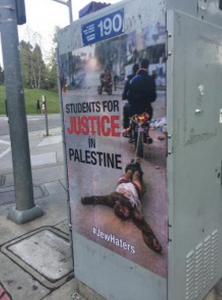
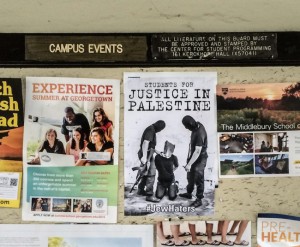
Jewish Voices For Peace And Students For Justice In Palestine
As the Boycott, Divestment, Sanction or BDS movement gains traction on college campuses, anti-Arab sentiment rears its head in many forms. For example, since the University of California Student Association passed a resolution recommending divestment, posters with violent images, calling Palestine solidarity activists anti-Semites and terrorists have appeared at multiple college campuses. Campuses include Drake University, DePaul, UMass Amherst, University of California, Irvine and the University of California, Los Angeles. We talk about that and also in another show of solidarity with Palestinians, the annual Jewish Voices For Peace national gathering had record attendance. Last summer’s assault on Gaza lead to a boom in JVP membership and donations, and a shift to the left among some liberal Zionists who decided to join JVP.
Alex Kane:
- Jewish Voices For Peace will continue to grow as the situation gets worse in Israel. That’s the productive tension from this conference.
- The Netanyahu win that you referenced is a gift to Jewish Voices For Peace and Students For Justice In Palestine and the larger Boycott, Divestment, Sanctions movement.
- There’s one stream of thought that as things get worse, as Netanyahu stays in office that it exposes the true face of Israel to the world.
- Since 2005, when hundreds of organizations within Palestinian society called for Boycott, Divestment, Sanction targeting Israel, the campus movement – Justice In Palestine has grown exponentially.
- You have dozens of new Students For Justice In Palestine chapters cropping up, even Jewish Voices For Peace chapters on campus. They’re broadening the discourse on campus. They’re bringing up the issue of Palestinian human rights and they’re pushing for divestment resolutions.
- Most of the resolutions are symbolic because they can’t force the universities to divest but it does lead to a push in media coverage and an increase with solidarity with Palestine.
- The opposition has come out strongly. The opposition ranges from well-funded right wing pro-Israel groups to even the Israeli government.
- It’s really remarkable; you have the Israeli consulate getting involved with campus politics in the U.S.
- It’s very easy for university presidents to come out against these incredibly hateful anti-Muslim posters. On the other hand, the same university presidents are part of this larger crackdown on Palestine solidarity on campus.
- Last year at Northwestern in Boston, they suspended their Students For Justice In Palestine chapter.
- Benjamin Netanyahu is the greatest gift to the Boycott, Divestment, Sanctions movement.
- The tensions between Obama and Netanhayu and the disrespect that Netanyahu has shown to the U.S. president has created some space on the left for them to get their message out that the U.S. should not be funding Israel to the tune of 3.1 billion dollars a year.
- The U.S. doesn’t care whether the Palestinians have a state or not. I don’t think this is a huge core issue of the Obama Administration.
Guest – Alex Kane is a freelance journalist writing for Mondoweiss and a graduate student at New York University’s Near East Studies.
——————————————————————–

Is Law and Disorder important to you? Consider a tax deductible donation to the show. By making a donation, you’ll be helping Law and Disorder continue to provide the consistent high quality content on some of the most pressing legal, human rights and international issues. This radio show is now a sponsored project of Fractured Atlas, a non-profit arts service organization. Contributions for the charitable purposes of Law and Disorder must be made payable to Fractured Atlas only and are tax-deductible to the extent permitted by law.
CIA Sponsored Terror, Civil Liberties, Criminalizing Dissent, Crony Capitalism, Gaza, Human Rights, Iraq War, NSA Spying, Political Prisoner, Surveillance, Targeting Muslims, Torture
Podcast: Play in new window | Download
Updates:
- Michael Ratner Updates On Julian Assange Case: You Can’t Just Keep A Case Going In Custody Essentially In The Embassy
- Julian Assange’s Case Could Go To European Court of Human Rights – Assange Is Being Arbitrarily Detained And Investigation Not Proceeding
- Eight Million Documents On Wikileaks In Highly Searchable Format
- Google Turns Over Wikileak Attorney Client Emails to U.S. Government.
- Federal Judge Denies EPIC’s FOIA Request On Government Surveillance Of Wikileaks Reporters – Denied Under Continuing Investigation Exemption
—–
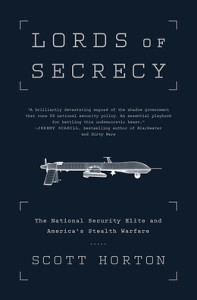

Lords of Secrecy:The National Security Elite and America’s Stealth Warfare
Nearly half a century ago a majority of Americans were concerned whether their country would go to war. It was a time when national debates and public discussions engaged America’s political consciousness. That’s not the case so much these days says our guest author and attorney Scott Horton. His recently published book Lords of Secrecy:The National Security Elite and America’s Stealth Warfare examines how secrecy within the United States government has corrupted fundamental systems of democracy. Scott Horton also surveys the legal authority that the current national security elite have based decisions to torture, wage war and subcontract private soldiers. When operating in secret, mistakes, excesses and crimes committed in the process are often kept quiet.
Attorney Scott Horton:
- Dick Cheney one of the longest serving secretaries of defense, because he had a peculiar atitude about secrecy. He manipulated the news secrecy all the time to give cover to claims and statements he made that turned out not to be true. These claims very frequently matters of the highest consequence.
- The entire case to go to war in Iraq which was in fact led by Dick Cheney rested on claims that they had weapons of mass destruction and that they had aligned themselves and were operating with Al-Qaeda that’s how we got the connection to 911. Those claims were very aggressively put forward by Dick Cheney. They turned out to be completely false. He parried any attempts to challenge them by saying all the intelligence we have on that is . . . secret, so I can’t share it with you.
- Of course, in good time we learned there wasn’t any intelligence or information that supported these claims.
- The lords of secrecy consist of the higher echelon officers of the national intelligence and security bureaucracy and they’re the people who have under American law, the power to create secrets using the classification authority.
- I make the case that they use that power very aggressively, very effectively to make themselves the ultimate decision makers on key national security issues and to remove those matters from the democratic, political process.
- It’s on the lords of secrecy who really influence the final decision when its made by the executive.
- The lords of secrecy, the people who wield the classification power also are part of a revolving door in Washington. They’re in government service, they leave that, they go to work as directors and senior officers of major contractors.
- Those contractors hold a half trillion dollars in contract business every year paid for by tax payers and they also make enormous campaign donations.
- Washington D.C. has emerged as the wealthiest standard metropolitan statistical area in the United States and that’s on the strength of the position of contractors and their ability to suck our treasury dry.
- What the American people don’t know about, they don’t form opinions about. They don’t conjutate about, they don’t become engaged with. That shows how secrecy and this other stuff are a very potent narcotic against democracy effectively, causing democracy to fade away while the national security elites are at the driver’s wheel making all the key decisions.
- I think it allows us to make war without going through the constitutional process.
- It’s really vague on how this go-to-war decision is supposed to be made. There’s the appropriation authority of Congress, there’s the Commander in Chief power of the executive, there’s the power to declare war, and exactly how those rights and powers play out in any given situation really isn’t clear.
- The bottom line is the US waging war overseas without the people of the United States having taken a decision to do so.
- My book has gotten much stronger attention in Europe than it has in the United States.
- A big part of the problem we have is the way national security and particularly intelligence community matters are reported in the United States.
- One thing I looked at the coverage of the drone war in Pakistan and I found very clearly Americans are actually the most poorly informed community globally on this issue.
- The media can’t really act without the whistleblower. It really comes down to the whistleblower being the last and best hope.
- The problem is national security whistleblowers don’t get a fair trial. They wind up being abused, mistreated.
- Let the Justice Department explain why they decided that Petraeus a slap on the fingers, nothing too serious, while they want to throw the book at Snowden.
- Let them give the rationale for the distinction between these cases. They’ve never done that.
Guest – Scott Horton, human rights lawyer and contributing editor to Harper’s Magazine. Scott’s column – No Comment. He graduated Texas Law School in Austin with a JD and was a partner in a large New York law firm, Patterson Belknap Webb & Tyler. His new book Lords of Secrecy The National Security Elite and America’s Stealth Foreign Policy.
—–
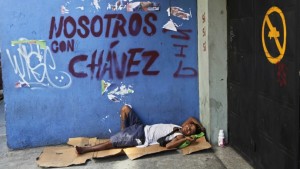
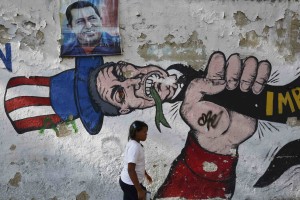
US Sanctions Against Maduro Government Officials
In its continuation of a decades long overthrow of the Venezuelan government, the United States issued new sanctions against Venezuelan government officials who the United States claims are involved in violating human rights guarantees. President Barack Obama issued an order declaring a national emergency with respect to Venezuela. The order lists certain key Venezuelan officials and said that any financial transactions with those officials are barred. This is typical of what the United States does to officials of government it doesn’t like, whether it was Nicaragua in the ’80s or Cuba since 1959 or 1960. These sanctions must also be seen the light of short-lived 2002 military coup in Venezuela in which the United States was deeply involved. Today we want to talk about the broader context of these actions and why the U.S. is continually trying to destabilize Venezuela.
Mark Weisbrot:
- It is pretty crazy that they have to declare Venezuela as an extraordinary threat.
- You don’t see any of the reporters asking the Whitehouse . . . what are you talking about?
- If you look at the Community of Latin American and Caribbean States for example, that is the alternative to the OAS, that was created a few years ago in response to US unpleasant actions in the hemisphere.
- Between 2000-2010 the Columbian military over 5700 innocent civilians, murdered them, and the United States just gave them more military aid.
- I was there during the protest a year ago, and of course it was very different from what I saw . . I was actually kinda shocked. I walked all over and took the metro all over Caracas and the only demonstration you saw were little uprisings in the richest neighborhoods.
- The people most affected the shortages, the ones that go and have to wait in line, can’t afford to buy anything in the black market.
- The poor and the working people, they haven’t protest because they mostly support the government.
- That’s a little bit of a disconnect from what you see in the press.
- This idea that the protests are related to the shortages doesn’t hold up when you see who’s actually protesting. These people have servants who do their shopping, wait in the lines.
- Upper middle class, they have servants, they have storage space.
- These sanctions are probably illegal under International Law.
- Again, there are things that are questionable, things that I wouldn’t try to defend but to create this picture, a very exaggerated picture that’s created here in the media because the U.S. wants to overthrow the government there I think is very unfortunate.
- Venezuela has been a target by the United States for a regime change for at least 13 years.
- A lot of people know if the opposition gets power, its just going to get worse for them.
- Venezuela is not facing a real balance of payment crisis, where they can’t pay for their import. They just have a dysfunctional exchange rate system and they have a fair amount of sabotage too.
Guest – Mark Weisbrot co-director of the Center for Economic and Policy Research, in Washington, D.C. to give us an update. He writes a weekly column for The Guardian Unlimited (U.K.), and a regular column on economic and policy issues that is distributed to over 550 newspapers by the Tribune Content Agency.
——————————————–
CIA Sponsored Terror, Civil Liberties, Criminalizing Dissent, Habeas Corpus, Human Rights, Iraq Veterans, Iraq War, Military Tribunal, Political Prisoner, Targeting Muslims, Torture, War Resister
Podcast: Play in new window | Download
Updates:
—–

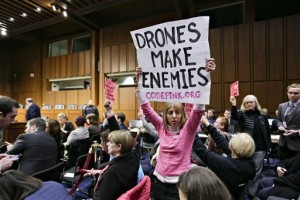
ISIS and The Anti-War Movement
Last June, the United States sent more military soldiers to Iraq and carried out airstrikes to stop the advance of the Islamic State of Iraq and the Levant known as ISIS. The US, Western Europe, Saudi Arabia and Arab Gulf policy is to overthrow Syrian President Bashar al-Assad which is also the goal of ISIS and other jihadis in Syria. ISIS’s membership may be close to 15 thousand members, half of what the CIA estimates. ISIS is led by a core of people who fought the U.S. in Iraq, fought the Iraq Army back in 2003 and then in 2011 fought in Syria. Last week our own Michael Ratner reported how the U.S. could be given leave to make war everywhere if President Obama’s request for AUMF is granted by a US Congress. What are the demands of the US peace movement?
Attorney Jim Lafferty:
- It was U.S. military strategy in the Middle East to begin with and past U.S. military action in that part of the world, especially in Iraq that provided the primary catalyst for the growth of ISIS.
- We destroyed the secular governments in Iraq and Libya that created the political space for ISIS and other right wing forces to grow.
- ISIS filled the governing vacuum took advantage of these ethnic divisions angered at the U.S. and steadily gained strength thereafter.
- If you think about it, we spent the last 40 or 50 years destroying leftist and secular, anti-imperialist movements all over that region of the world.
- Two weeks ago the Pentagon announced their sending 4000 troops with very heavy weaponry to Kuwait.
- The U.S. Army has already set up a division headquarters in Iraq. A division consists of 20 thousand troops.
- The people that are having the most success in fighting a Syrian government right now is ISIS.
- The question is not should they be stopped. The question is what will be effective in stopping them.
- There is great unity in the anti-war movement. They’ve got unified actions planned for later this month in Washington DC.
- The anti-war movement is going to be tough for the anti-war movement because the propaganda machine, the mainstream media in this country has done its job in pandering by showing despicable pictures.
- What we don’t see is Saudi Arabia our staunchest ally, executes 20-25 people by beheading every month.
- Cindy Sheehan, is setting up a Camp Casey at the Capitol. All the anti-war groups are holding a mass teach in on this very issue we’re talking about now.
- First of all a nuclear power like Israel getting all exorcised about the fact that somewhere down the road a neighboring country might have the same weapons it has.
- Pardon me if I can’t get terribly excited about that. We shouldn’t have any country in the world with nuclear weapons.
- In addition to everything else (Netanyahu) is lying about the threat if it were a threat. To come to the U.S. Congress to give that bloviating speech where he offers nothing new.
- He offers no alternative to what the administration is trying to do and is apparently making some progress in doing and is hailed as a hero by one side of the aisle is really quite appalling.
- Answer.org
Guest- Attorney Jim Lafferty, Executive director of the National Lawyers Guild in Los Angeles and host of The Lawyers Guild Show on Pacifica’s KPFK 90. 7 FM.
—-
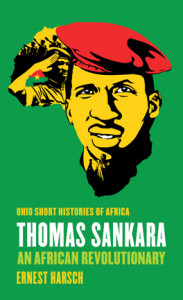

Thomas Sankara: An African Revolutionary
As president of the Burkino Faso, one of Africa’s poorest countries, Thomas Sankara was often called the African Che Guevara. In 1987, he was assassinated during a military coup that took down his government. However, Sankara’s economic and social policies left an important mark not only on his country but across Africa. Sankara was a Marxist and openly sought independence from France and at the same time he was building a pan-African unity.
Professor Ernest Harsch:
- He was the president of Burkino Faso from 1983 to 1987, a very short period of time.
- He was a revolutionary. Everybody acknowledged that at the time especially the French who greatly disliked him.
- The U.S. wasn’t too happy with him. He wanted to stop in Atlanta to meet with Andrew Young during his visit to the UN General Assembly. They didn’t allow him to make that stop. So he spoke in Harlem instead.
- It’s a small west African country, not even that many experts on Africa know that much about it. He was in power for about 4 years and he was overthrown by a military coup.
- I think for people that are interested in progressive change its always useful in seeing how others elsewhere in the world are fighting against oppression, are fighting for their rights and occasionally actually able to make some change.
- It’s also useful to learn about what kind of leadership can help people do that.
- He wasn’t a grassroots activist. He came out of the military. He was a captain. He got radicalized in the military and because of the context of his country which was extremely poor and under-developed, backward and subservient to the French who been their formal colonial power, very corrupt both military and civilian politicians over the decades.
- He’s representing a newer generation where that initial idealism about independence will bring all sorts of changes. He’s speaking to the ills of formally independent countries that are still subservient to their colonial masters and still haven’t found a way to break out of the trap of underdevelopment and external economic domination.
- He’s speaking to a new generation that still resonates today which is young people who are fed up with the way things are.
- They’re fed up with the corruption of their leaders whether they’re elected or not elected.
- You travel through west Africa you see Sankara t-shirts.
- The first time I met him was in New York. The guy was direct. He listened to what you had to say. He thought about it. I’ve never met anybody who was so quick. I mean he was witty.
- The other times I met him in Burkina. The first time was a long interview. The other times he didn’t want to be interviewed, he just wanted to talk about politics.
- Up to that time, nobody hand promoted or named so many women to cabinet position. One of them now is the current minister of justice.
- They tried to tackle some restrictions on women at the local level. It’s hard they made a small dent in it. They fought against female genital mutilation, the right to divorce by mutual consent.
- It (the country) was called Upper Volta which was a colonial name. They wanted something African and Burkina Faso, the words are from two local African languages basically means the land of the upright, or the uncorruptible people. The people are known as Burkinabe and Burkinabe comes from a third African language.
- Before he became president he was briefly a prime minister in a coalition government. His first trip was to Libya.
- Then he went to the non-alliance summit in New Delhi and gave this very fiery speech basically solidarizing with the Cuban revolution, with the Nicaraguans, with the Western Saharans, with the new Calidonians. He clearly aligned himself with the anti-imperialist, pro-third world, pro-development wing, within the non-alliance movement.
- The French didn’t like that. So, they told some their people locally, look let’s get rid of this guy.
- They had an internal coup. He was arrested. He was in prison for a while but they couldn’t sustain that. He was too popular. He became president.
- He was only 33 when he became president, so this was a youthful leadership.
Guest – Professor Ernest Harsch has taught courses on African development and political instability in the Sahel and is a research scholar affiliated with the University’s Institute of African Studies. He earned his PhD in Sociology from the New School for Social Research in New York. Throughout a professional career as a journalist, he wrote mainly on international events, with reporting on Asia, the Caribbean, and Eastern Europe, but most extensively on Africa.
—————————————————–

Please help support Law and Disorder by clicking on Fractured Atlas graphic. This radio show is now a sponsored project of Fractured Atlas, a non-profit arts service organization. Contributions for the charitable purposes of Law and Disorder must be made payable to Fractured Atlas only and are tax-deductible to the extent permitted by law. You can donate as little as 5.00 a month.
CIA Sponsored Terror, Criminalizing Dissent, Guantanamo, Human Rights, Political Prisoner, Prison Industry, Torture, Truth to Power
Podcast: Play in new window | Download
Updates:
- Michael Ratner: Palestine Not Recognized As State By U.S. Thus Allowed To Be Sued In Federal Court For Attacks on Israel
- Michael Ratner: Why Is Obama Trying To Get An AUMF When The U.S. Is Already At War With ISIS? If Passed, The U.S. Under This Act Can Make War Everywhere
- ICC En Vogue? – Hosts Talk About NBC Drama “Crossing Lines.”
—–

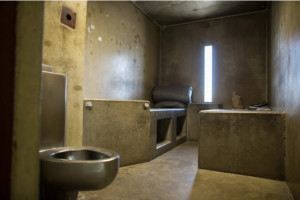
Pelican Bay Solitary Confinement Case Update
We bring you an update on the Pelican Bay Prison Solitary Confinement Case. As you may recall Pelican Bay Prison had more than 1000 prisoners in long term solitary confinement at 10-20 years or more. The Center for Constitutional Rights and its lead attorney Jules Lobel have been challenging this practice for a number of years since 2012. Recently, the state of California in an effort to blunt the lawsuit has transferred some of the named plaintiffs to other prisons. Their theory, once we’re rid of the plaintiffs maybe we’re rid of the lawsuit. CCR and Jules Lobel went out to California to argue that this is not a Constitutional practice. That transferring a person from Pelican Bay to another prison in California should not blunt the lawsuit and in fact CCR we should be able to challenge solitary confinement in those prisons as well. The judge agreed and now the CCR case will not just challenge Pelican Bay Prison solitary confinement practices but those in other prisons throughout California.
Attorney Jules Lobel:
- Because of 3 hunger strikes and our litigation the California prison officials are now instituting reforms. They realize they have to do something.
- There are over 1000 people in solitary. When we started the case 500 people were there for over 10 years.
- Because of the reforms they’ve made under pressure from our litigation there are now only 230. Still 230 people for over 10 years is a huge amount.
- They’re also moving people out not only to general population prisons, but to other solitary units in other prisons. Other SHOES, its called Special Housing Unit.
- Four of our ten plaintiffs are moving to another SHOE to a place called Tahachapi and the defendants say, they’re no longer part of your case.
- That’s what the argument was about. The argument was about whether or not you can expand the case beyond Pelican Bay.
- If you were at Pelican Bay and transferred to another prison, still in solitary, you’re still part of our class.
- The judge accepted that we can expand the case, rejecting the state’s argument.
- We bifurcated the trial so we could have a relatively quick trial on Pelican Bay. The fundamental question for Pelican Bay trial is whether keeping people for a prolonged period of time in solitary confinement at Pelican Bay is cruel and unusual punishment.
- We also have a claim in that way that they are placed there. It violates due process.
- These guys only get reviews every six years. So, you stay in your cell for six years and then after six years somebody comes and reviews whether you should be kept in solitary.
- No state in the country has six years. Usually its 30 days, 90 days, six months, maybe at most a year.
- California unlike most states puts people into solitary simply because they’re a member of a gang or associated with a gang.
Guest – Attorney Jules Lobel, has litigated important issues regarding the application of international law in the U.S. courts. In the late 1980’s, he advised the Nicaraguan government on the development of its first democratic constitution, and has also advised the Burundi government on constitutional law issues. Professor Lobel is editor of a text on civil rights litigation and of a collection of essays on the U.S. Constitution, A Less Than Perfect Union (Monthly Review Press, 1988). He is author of numerous articles on international law, foreign affairs, and the U.S. Constitution in publications including Yale Law Journal, Harvard International Law Journal, Cornell Law Review, and Virginia Law Review. He is a member of the American Society of International Law.
——

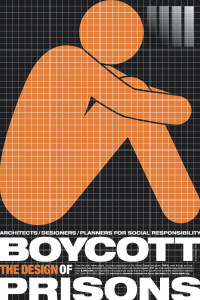
Architect’s Human Rights Code of Ethics Petition
In our coverage of psychologists involved with torture continuing to hold their professional licenses to practice we look at a similar concern with licensed architects who design prisons, solitary confinement cells and death chambers. Research has show that the design of a prison can influence many aspects of prisoners lives including recidivism rates. Recently, the American Institute of Architects rejected a petition to censure members who design solitary confinement cells and death chambers.
Raphael Sperry:
- In 2013 when the UN Special Rapporteur on Torture announced that spending more than 15 days in solitary confinement was a human rights violation and we’re aware that people in the United States are routinely held in solitary for years if not decades, and that there had been dozens of supermax prisons that housed thousands of people in those conditions, specially designed for that purpose, that really tipped the scales.
- That was really shocking to realize the same tools that architects use everyday trying to make the world a better place for people can be used to torture and kill people.
- The question of what constitutes a torture chamber is complicated. There are many buildings that have been used to house prisoners in solitary confinement that were never designed for that purpose.
- There are a subset of prisons that are designed for solitary confinement. They’re usually called administrated segregation units.
- Supermax prisons are the most egregious. There’s no space for people to eat together. There are no tables with seats clustered around them even.
- The recreation spaces that prisoners have a right to go into for an hour a day, are shrunk down to size that they’re for just one person.
- You guys are probably familiar with ADX Prison in Florence, the Federal Supermax which is supposed to be the most secure supermax in the United States.
- In that facility they actually have showers in every cell. The prisoners then actually don’t have to get into the hallway. They might walk by somebody elses’ cell or walk by somebody elses’ cell to get to a shower.
- The AIA has a code of ethics for members and it already had a statement saying members should uphold human rights in all their professional responsibilities.
- It’s not directly enforceable. If members set out to design a space intended to kill somebody or to torture them or degrade them which is a human rights violation. AIA is not prepared to take any disciplinary action to someone who does that.
- We were asking them to simply add a rule that clarified if a member designed a space that is intended for human rights violations specifically execution and prolonged solitary confinement that it would be clear they’re in violation of the code of ethics and then AIA could take disciplinary action that include censure and expelling them from the institute.
- The National Board of Directors gets to set the ethics code for the whole organization including all the chapters. They took in our petition. They took in all the letters of support we sent in.
- Then they didn’t communicate with us . . they referred it to an internal group. They never let us know who was on that panel. They sent a brief letter back to me head of the ADPSR saying that they weren’t going to make the change and they were concerned about potential anti-trust violations and how hard it would to enforce.
- Lastly, they don’t want to restrict their members from designing any particular building type. I just found that to be the worst.
- To me if you’re going to be a professional and take on the responsibility of protecting public health, safety and welfare every time you put your pencil down then there should be limits to what you do with that specialized knowledge.
- To us its not a political issue, its a human rights issue and they said they’re an organization that’s for human rights. It didn’t seem right to us that they should pick and choose which human rights they’re ok with and which ones they would restrict.
Guest – Raphael Sperry, president of Architects / Designers / Planners for Social Responsibility (ADPSR), a 32-year old independent non-profit organization. He researches the intersection of architecture and planning with human rights with a special focus on prisons and jails, and advocates for design professionals to play a larger role in supporting human rights in the built environment. He directs ADPSR’s human rights advocacy, including ADPSR’s petition urging the AIA to amend their Code of Ethics and Professional Conduct to address buildings that violate human rights. He was the first architect to receive a Soros Justice Fellowship from the Open Society Foundations, hosted jointly by the University of California at Berkeley College of Environmental Design and Berkeley Law School, in 2012. He is an active member of the AIA Academy of Architecture for Justice and a leader of its subcommittee on sustainability.He holds an M.Arch. from the Yale School of Architecture and a BA summa cum Laude from Harvard University.
—————————————

Please help support Law and Disorder by clicking on Fractured Atlas graphic. This radio show is now a sponsored project of Fractured Atlas, a non-profit arts service organization. Contributions for the charitable purposes of Law and Disorder must be made payable to Fractured Atlas only and are tax-deductible to the extent permitted by law. You can donate as little as 5.00 a month.
CIA Sponsored Terror, Civil Liberties, Criminalizing Dissent, Gaza, Human Rights, Political Prisoner, Prison Industry, Supreme Court, Surveillance, Targeting Muslims, Torture
Podcast: Play in new window | Download
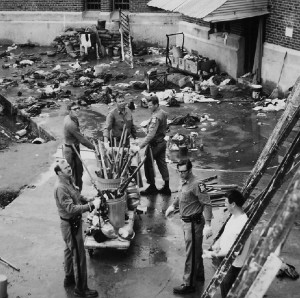
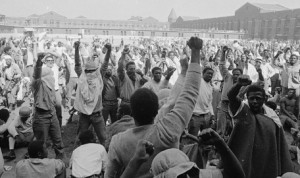
Special on Mass Incarceration : Socialism and Democracy – Lessons from Attica: From Prisoner Rebellion to Mass Incarceration and Back
Fyodor Dostoevsky’s observed that “the degree of civilization in a society can be judged by entering its prisons.” Our guest Dr. Heather Ann Thompson reports in her recent article Lessons from Attica: From Prisoner Rebellion to Mass Incarceration and Back, that according to the Prison Policy Initiative, by 2011 the United States was confining “more than 2.4 million people in 1719 state prisons, 102 federal prisons, 2259 juvenile correctional facilities, 3283 local jails, and 79 Indian Country jails as well as in military prisons, immigration detention facilities, civil commitment centers, and prisons in the U.S. territories.
Dr. Heather Ann Thompson:
- Its important to really examine the broader history of prisons and criminal justice because trying to explain how we became the world’s outlier with so many incarcerated and such a hugely disproportionate number being persons of color, we have a lot to explain.
- Something very clearly happened after the 1960s to our criminal justice system, even more specifically after 1971. Clearly it had a lot to do with the rebellions of that period.
- Sorting all that out is what I’ve been doing for the last decade.
- Just like had happened after the civil war, sort of the first great moment of civil rights unrest in this country when we had 4 million newly freed African Americans demanding a real voice in our society, and meaningful equality.
- The response of that society, in that case, in the South, was to change all the laws. To all of a sudden criminalize black spaces in new ways and almost overnight southern prison institutions not only exploded in population but they went from being all white to all black.
- You fast forward to the 1960s and I think something similar happened.
- Many northern politicians begin to conflate urban protest and unrest, the slow pace of the equality and gains with crime, and began a war on crime in 1964 with Lyndon Johnson before there was immediately impressive rise in crime.
- We need to know much more about the people that were inside the prison walls.
- What happened in the American prison system that we see today, what seems to be the ultimate control, the ultimate punitive penal state.
- One of the long standing lawyers in this case Elizabeth Fink fought this battle on behalf of the Attica brothers for decades and decades. These are the people who are the real repository of that history.
- My role as a scholar, what I tried to do was rescue for the American public, some of those hidden histories. You had a 4 day congregating thousands, 1300 men inside of a penal institution that were willing to stand together and black, Puerto Rican, white and say to the state, we’re willing to negotiate with you logically and in good faith to try to improve the conditions under which we live.
- What made it so really remarkable was the world’s attention was focused on it. Everybody was watching Attica.
- But ultimately, New York state was unwilling to give in on the most important demand which was amnesty.
- Amnesty for which once they surrendered, they would not be charged for any riot-related crimes that the state would alleged they’d committed and an assurance that they would not have reprisals.
- They – state troopers- retook the prison in an utter brutal fashion. They mowed down people first with tear gas then guns, handguns, deer slugs, shot guns, killing scores of people, wounding scores of people.
- Then, realizing the blood bath, officials stood outside and told the world, that the prisoners are the ones that killed the hostages, and from then on tried to control the story, cover up what really happened, that began the 40 year saga of trying to tell the truth of what happened at Attica.
- Had I not met people like Elizabeth Fink who could help me understand this story and had I not spent ten years digging in every knook and cranny to try to uncover the story, this would have been a difficult story to tell because the state has gone to enormous lengths to keep a lid on it.
Guest – Dr. Heather Ann Thompson, is a native Detroiter currently on faculty in the Departments of African American Studies and History at Temple University. In 2015 she will be joining the faculty of the University of Michigan in Ann Arbor. Thompson has just completed the first comprehensive history of the Attica Prison Rebellion of 1971 and its legacy for Pantheon Books.
—–
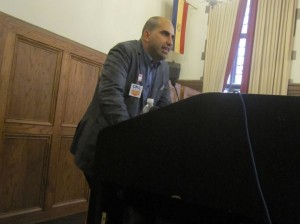
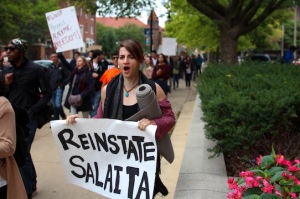
Professor Sues University of Illinois Over Firing for “Uncivil” Gaza Tweets
We bring you to a press conference held in New York City last week at the Center for Constitutional Rights. The Center is representing Professor Steven Salaita along with the Chicago civil rights law firm of Loevy & Loevy. Salaita was hired and then discharged before he could even start his job last summer at the University of Illinois. He was hired by the American Indian Studies program after a thorough vetting. After Israel attacked Gaza where some 2000 people were killed including 500 children. Salaita tweeted several what were termed “uncivil” messages on his twitter account. This was brought to the attention of Zionist donors to the University of Illinois who then pressured Chancellor Phyllis Wise to rescind the hiring. Professor Salaita’s case is probable the most important case in 50 years, not since the 60s when the Supreme Court overturned the non-communist loyalty oath has an issue of this importance arisen. Some 6000 professors have vowed to boycott the University of Illinois.
——-
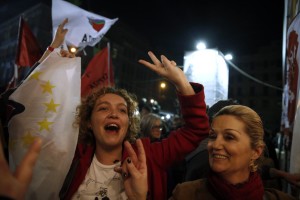
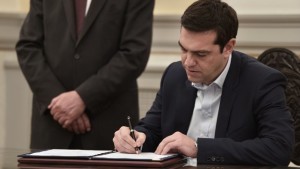
Greece’s Left-Wing Coalition Wins Majority
Last week in a historic election, the Greek people voted in the anti-austerity party of Syriza, led by Alexis Tsipiras winning a 149 seats of the 300 seat Parliament. In the previous 8 years, the Greek people have demonstrated massively, occupied government buildings and have gone on more than 30 general strikes. Now they’ve formed a party to take back power in government to effectuate a program that will call for cancellation of debt, nationalization of the banks, and expropriating closed factories. Will their attempt to alleviate much of the misery of the Greek population succeed? We’ll see.
Dan Georgakas:
- Austerity in Greece means 26 percent unemployment for at least 3 years, 60 percent unemployment for people under 30 which has caused 200 thousand college graduates to leave the country in the last 2 years.
- Greece had the lowest pensions in the EU.
- Wages which were the lowest in Europe were cut about a third.
- Prices in Greece are about the same in the EU elsewhere.
- 300 thousand businesses failed as of 2013.
- What austerity does, having taken away people’s money is raise the property tax and raise the gas and electric taxes.
- It’s a pretty desperate situation, food lines, there’s been a mass movement from the bottom.
- There are a lot of small left wing parties in Greece.
- What Syriza did was put together a coalition of left parties. That was very difficult to do because within the coalition there are Trotskyists, there are Euro-communists, environmentalists, anarcho-syndicalists and so getting to all those people into one room and agreeing on a program is not a very easy thing to do.
- But Syriza itself isn’t there for a traditional party. It is a coalition of parties that probably will transform in time perhaps into a coherent party.
- I would say that if anything characterizes the profile of Syriza its very anti-Stalinist. It wants to go from the base up and talks a lot about horizontalism.
- It’s quite a weak economy and say it will take decades to repair.
- In the minds of the leadership is capitalism and prosperity are incompatible.
- The steps they want to take are very modest, beginning with changing some of the cuts they made in the past, and beginning to deal with the corruption and tremendous waste of money.
- Same day he was inaugurated, he (Alexis Tsipras) went to Kaisariani where 300 Greeks were massacred by the Nazis as they were departing Athens. Most of the people massacred were communists or resistance fighters. Going there after being sworn as prime minister and laying a rose on the graves, he really served notice on the Germans that the days of us kowtowing and being bullied by you are really over and don’t you dare call us pigs anymore.
- People who contact me say that people are euphoric in Athens.
- We realize that the loans to Greece are really self serving. For instance, Goldman Sachs, arranged for Greece to enter the Eurozone in the first place by totally fraudulent cash arrangement.
- They loaned Greece money at a special rate so Greece could pay off its debt to look like it was solvent and then issued new bonds at even higher rates.
- pressproject.gr
Guest – Dan Georgakas, regular columnist for the National Herald, the leading Greek American weekly newspapero co-author of Detroit: I Do Mind Dying and coeditor of Solidarity Forever: An Oral History of the IWW. He was a frequent contributor to now defunct Journal of the Hellenic Diaspora and the Journal of Modern Hellenism. Dan has taught at NYU, CUNY, Van Arsdale Labor College, Columbia University and University of Oklahoma.
—————————————————————-

Please help support Law and Disorder by clicking on Fractured Atlas graphic. This radio show is now a sponsored project of Fractured Atlas, a non-profit arts service organization. Contributions for the charitable purposes of Law and Disorder must be made payable to Fractured Atlas only and are tax-deductible to the extent permitted by law. You can donate as little as 5.00 a month.
CIA Sponsored Terror, Civil Liberties, Criminalizing Dissent, Crony Capitalism, Habeas Corpus, Human Rights, Political Prisoner, Prison Industry, Supreme Court, Surveillance, Torture
Podcast: Play in new window | Download

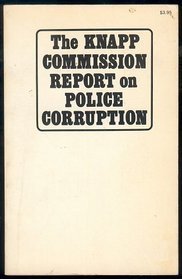
Blood On Their Hands: The Racist History of Police Unions
The NYPD police officer union’s outrageous assertion that New York Mayor Bill de Blasio had “blood on his hands” in the murder of two NYPD officers, is consistent with the reactionary role of police unions across the country. They came to prominence in the wake of the civil rights movement. Police unions have played a powerful role in resisting all manner police reforms and in defending police officers no matter how outrageous and racist their actions. Attorney Flint Taylor brought an analysis of police unions playing a major role in defending cops throughout the last few decades in his article Blood On Their Hands: The Racist History of Police Unions.
Attorney G. Flint Taylor:
- I started to look at this because I had been in battle with the union here in Chicago, the Fraternal Order of Police, since I’ve been a lawyer which is almost 45 years.
- After I saw what was happening in New York, I did some research on New York as well as brought back to memory a lot that had happened here in Chicago.
- In New York I took it all the way back to Mayor Lindsey when he attempted to deal with and bring about a civilian review agency of the police department.
- One of the instances (in New York) police showed their displeasure by running through the black community banging on the tops of garbage cans, waving their guns around and Abe Beame had to get a restraining order to stop them.
- The racism of it all became more apparent under Mayor Dinkins reign in the 90s, when he again revisted the idea of strengthening the civilian review agency.
- Sometimes you find that the union is to the right of the police hierarchy.
- When I put together the article and studied New York over the last 50 years and brought together my understanding here in Chicago, is that they’re so fundamentally racist. They don’t even represent all of the cops.
- They represent the white power structure, the most reactionary aspects of the department.
- Whenever racism is at the heart of police actions, you’ll find the union shoulder to shoulder defending those actions by those cops.
- In Chicago it started around the Democratic National Convention in 1968. The murder of Fred Hampton and Mark Clarke, the Black Panther leaders.
- Of course the FOP became extremely actively involved in defending the indefensible in the Jon Burge police torture cases and has been at the heart of it here in Chicago for 20-30 years in resisting all forms of justice in the Burge torture cases.
- Right after he (Burge) was fired by the police department in the mid-nineties, the union had the temerity to organize a float to honor Burge and the two other officers who were found to have tortured . . . in the St. Patrick’s Day parade.
- The union here again is a white officers union – not only that – the white officers union, it represents the racist interests of a certain click of police officers that patrol the communities of color here in Chicago.
- Until there’s a fundamental change in policing and the justice system, the union is going to have that kind of power and is going to continue to flank on the right, what already a reactionary, military force which is the police department.
- It’s basically universal maybe more so in the big urban areas.
- We have to educate our brothers and sisters in the broader labor unions like the SEIU and the unions that support the correctional officers.
- Police unions reflect police departments, police departments are occupying forces. They were created to put down the working class. They were created to protect the interest of what is now the one percent.
- So, how could they be part of the movement that deals with workers’ rights and fights against racism when that’s what they’re defending?
Guest – G. Flint Taylor, a graduate of Brown University and Northwestern Law School, is a founding partner of the People’s Law Office in Chicago, an office which has been dedicated to litigating civil rights, police violence, government misconduct, and death penalty cases for more than 45 years.
—–
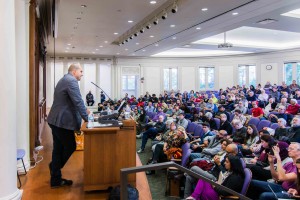
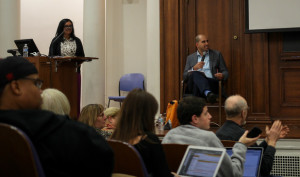
Inter-Nationalism: Encountering Palestine In American Studies
Professor Steven Salaita at age 39 had already written 6 outstanding books. He was a tenured professor at Virginia Tech University. He was offered a job with tenure at the University of Illinois in their American Indian Studies program. He accepted the job, and quit his other job, left his house, his wife did the same, left her job. They were enroute to Illinois for him to start working when he was told by Chancellor Phyllis Wise that he was not going to be hired. He was fired from a tenured job he had been offered at the University of Illinois because of his tweets criticizing Israel’s murderous war on the people of Gaza last summer .
Why? The university was under tremendous pressure as documentary evidence shows by private donors who said, you hire Salaita, we won’t give you money. The university caved. Salaita didn’t get his job. He’s now out of work and he’s about to file or will have filed a lawsuit trying to get his job back and reassert the principles of academic freedom, academic shared government and free speech. We hear a presentation by Steven Salaita titled Inter-Nationalism: Encountering Palestine In American Studies delivered at New York University November 2014.
——————————————————————-

Please help support Law and Disorder by clicking on Fractured Atlas graphic. This radio show is now a sponsored project of Fractured Atlas, a non-profit arts service organization. Contributions for the charitable purposes of Law and Disorder must be made payable to Fractured Atlas only and are tax-deductible to the extent permitted by law. You can donate as little as 5.00 a month.

























